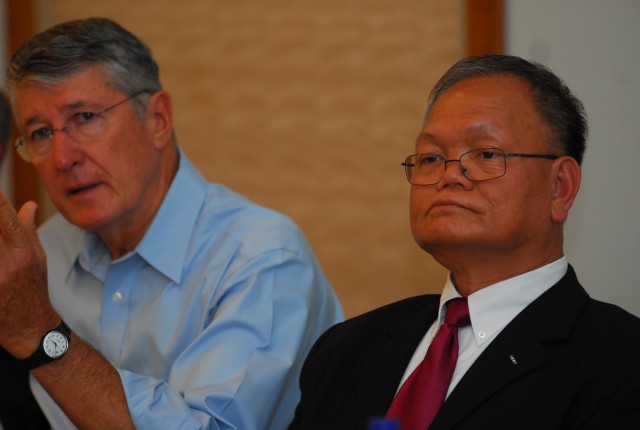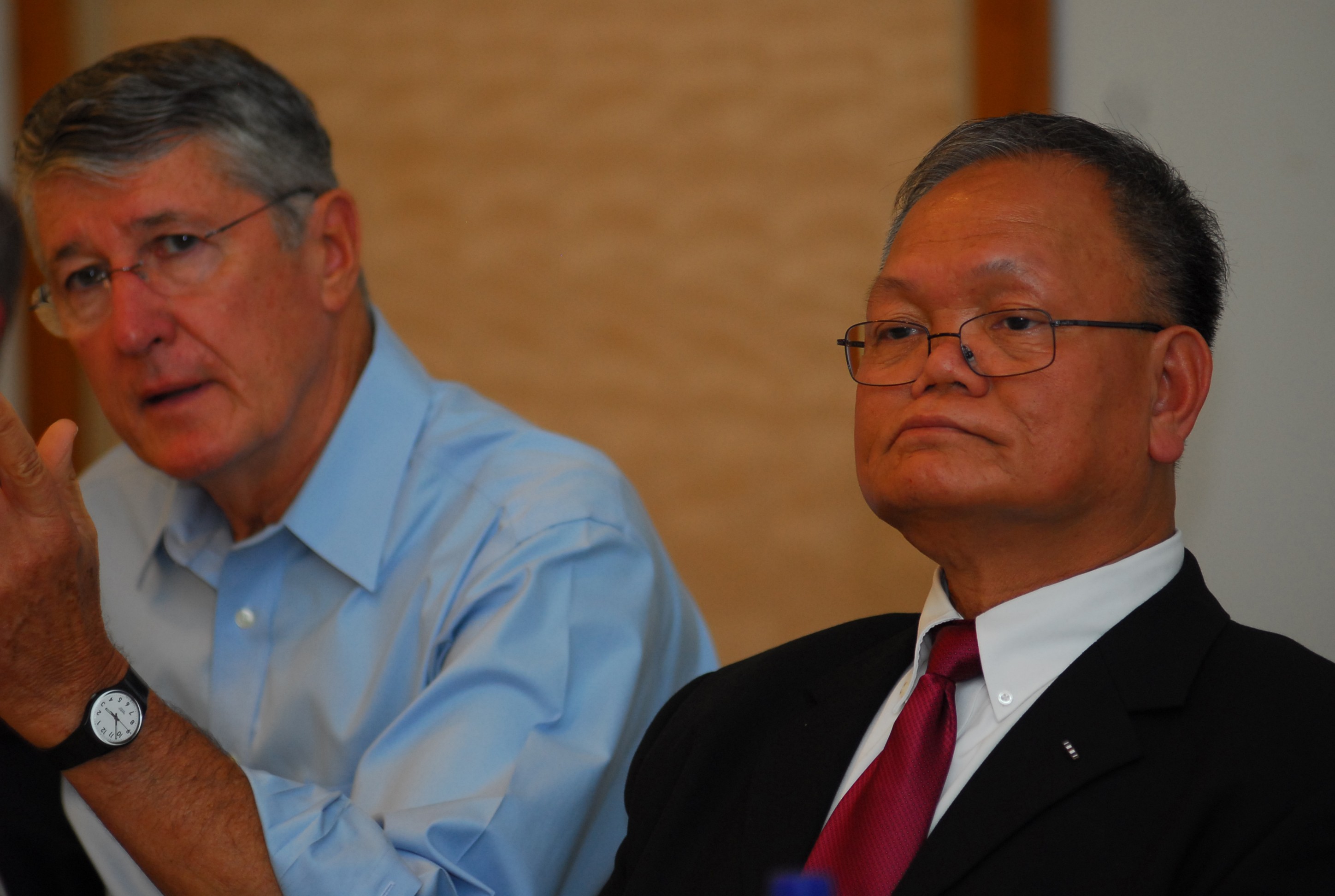
FORT BENNING, GA - Seven former advisers in Vietnam and one Vietnamese officer met with more than 30 officers from the 3rd Heavy Brigade Combat Team Friday at the National Infantry Museum to discuss the challenges and lessons they learned in developing partnerships.
"We learned some hard lessons," said U.S. Navy Capt.(R) Ken Jacobsen, a Vietnam veteran and president of Counterparts, an organization that brings together advisers and advisees from the Vietnam War.
The 3rd HBCT officers will serve as advisory team chiefs and deputies during the unit's upcoming deployment, said MAJ Robert Boone, the brigade's Stability Transition Teams operations officer.
The 3rd HBCT, which is preparing for its third deployment to Iraq, is transitioning from a combat mission to an advisory mission. The brigade will be divided into 16 STTs that will fan out across southern Iraq when the unit deploys in October, said LTC James Carlisle, 3rd HBCT's civil military operations officer.
Other members of the panel, all Counterparts members, included U.S. Marine Corps Col.(R) James Coolican, CPT(R) David "Pappy" Hicks, MAJ(R) Richard Webster, Dr. James Willbanks, Michael Lund, author John Loving and Tran Ngoc Hue, a former lieutenant colonel with the 1st Army of the Republic of Vietnam.
"We are bringing in folks from the Vietnam era who did the jobs we are doing now," Carlisle said.
The wars in Vietnam and Iraq can't be compared to one another but the advisers for both wars have faced similar issues in developing partnerships and gaining the respect of their counterparts, he said.
The panel shared its experiences, took questions from the audience and offered advice in building relationships with counterparts.
"An adviser may need to be something more than an 'up the guts with lots of smoke' Soldier," said Coolican, who was an adviser to Hue and the ARVN during the 1968 Tet offensive.
"My greatest weakness in Vietnam was language. I always seemed to be struggling to make a point, or to make sure that we all understood each other. In the heat of the battle that is no good.
"As part of being accepted, I found that as an adviser it was imperative that I lived, ate, traveled and shared with the Vietnamese as if I was a Vietnamese. The more time I spent with them and away from the compound, the better my relationship developed."
Jacobsen asked the future advisory team leaders to see the bigger picture from the viewpoint of the Iraqi counterpart.
"Understand the pressures of your counterpart," he said. "Understand that his family may be fighting on the other side. Recognize that his way of getting from point 'a' to point 'b' may be the best way in his culture and that your way may flatten the grass."
Hue, who commanded an Infantry battalion before being captured by the North Vietnamese and spending nearly 13 years as a prisoner of war, said the qualities he looked for in an adviser were trustworthiness and respect to his customs.
"I would love for my adviser to acknowledge that we have the same enemy, the same goal, the same benefits in winning the war we are fighting," Hue said. "And most of all, I would prefer to have a friend who is willing to help me rather than a commander who orders me to do this or that."
After Hue was captured, he said his adviser at the time, U.S. Marine Corps Lt. Col. David Wiseman, never gave up on finding him.
Twenty years later, and seven years after Hue was freed, Hue said Wiseman located him and his family after a chance encounter with a Vietnamese man who recognized the photo of Hue that Wiseman kept on his desk in the hopes someone would come forward with answers.
"He finally found me and my family and brought us to the United States,' said Hue, who linked up with Coolican, another former adviser, to help him find a job and start his new life. "He never gave up hope."
LTC Rhett Griner, an STT leader, said he hopes to forge as strong a partnership with his future counterpart as the one displayed by Hue and his former advisers.
Griner said the biggest thing he learned from the panel discussion was the importance of being loyal to his Iraqi counterparts.
"You've got to be teammates," said Griner, who will deploy to Iraq for the third time with the brigade. "I need to make sure I embrace the guy, understand what he wants to do and help him do it."
Another transition team leader, COL Paul L. English Jr., said he enjoyed getting firsthand information from advisers who've been through what the brigade faces in its new mission.
"It's confirming some of the stuff I've read," he said. "I'm talking to guys who lived the history."
In October, the brigade will head to Fort Bliss, Texas, to train with Homeland Security to prepare for its upcoming deployment.

Social Sharing